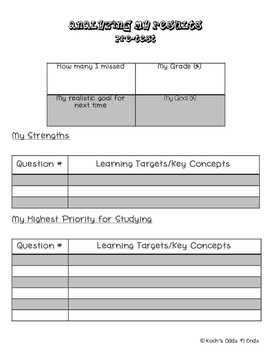Midterms at GHS have inspired several questions about ways to save time on scoring assessments. While there are limits to what multiple choice can assess well, questions that are carefully designed and target specific objectives can assess higher order thinking and provide teachers with the ability to provide students with fast feedback.
Megan Faherty of Angela Watson's Truth for Teachers blog/podcast puts this well: "If you don't have time to grade it, students don't have time to learn from it."
There is so much research about the impact of feedback on student performance. But for fast feedback from these types of assessments to be meaningful, teachers need to plan for students to use it.
Depending on the tools teachers use, there are many options for helping students review and use their feedback from assessments that involve limited choices.
A few ideas, such as those from "Getting Students to Engage with Feedback,"
- "Make a connection between the expectations of an assignment and feedback. When I set an expectation, I explain how I will give feedback and the way students should apply the feedback to their work."
- "Create opportunities for students to interact with feedback during class sessions."
- Students can work with peers who had similar challenges to determine what skill or concept was involved in the question troubled them, and think about what knowledge or strategies might help them in the future.
- Teachers might also create specific plans for students to review questions or problems, recognize their strengths, and utilize resources to help address areas of struggle. Simply having students review incorrect responses and answering questions like, "Why is the correct answer better than the other options? Why did you think the answer choice selected was right? Can you find evidence for why it is wrong?" helps improve engagement with this work.
This aligns with research that shows that "Short, low-stakes tests also help teachers gauge how well students understand the material and what they need to reteach. This is effective when tests are formative—that is, designed for immediate feedback so that students and teachers can see students’ areas of strength and weakness and address areas for growth."
Asking students to take the time to review not only saves you time, but then also leads to better results, especially if students know they can retest or they earn back credit for showing that they know the material via these test reflections.

No comments:
Post a Comment
Have something to ask or add? Let us know! We have moderation turned on (just in case), but we will be sure to approve new comments each week day.